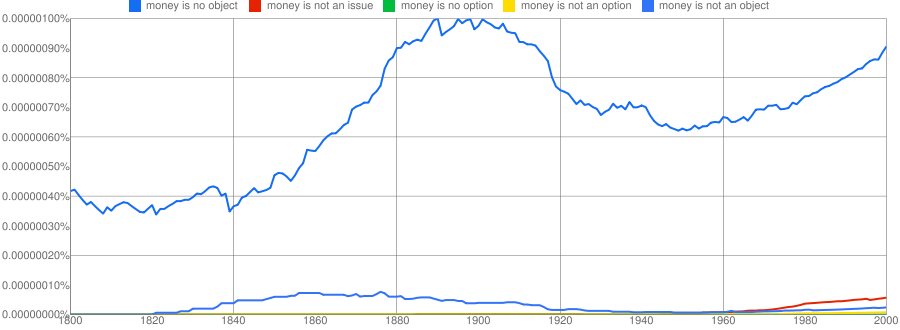The phrase "If money were not an option" is often used to mean "Don't worry about how much it would cost". However, I just noticed that the last word, option, makes it sound like saying "If spending money was not one of your options".
Should I keep using this phrase? Or is it a mutation of the phrase "If money were not an object" ? Going by exact quote searches with Google, they're about the same: "if money were not an object" (32,400 results) and "If money were not an option" (27,500 results). Or would I be far better off using neither of these and just saying "If money were not an issue" ?

